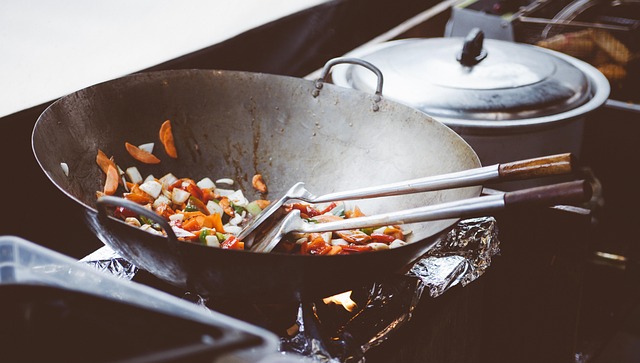Culinary Roles – Food Preparation and Kitchen Operations
Culinary roles involve preparing meals, presenting dishes, and keeping kitchen areas organized. These positions suit individuals with cooking skills or those willing to learn in fast-paced environments. Duties can include cleaning work areas, following recipes, and working with other kitchen staff to serve meals efficiently and safely.

What are common responsibilities in culinary roles?
Culinary professionals engage in a wide range of tasks depending on their specific position and the type of establishment they work in. While duties can vary significantly, some common responsibilities may include cutting vegetables, grilling meats, and preparing desserts. These fundamental tasks form the backbone of many kitchen operations, requiring skill, precision, and attention to detail.
In addition to food preparation, cooks often participate in kitchen maintenance, ensuring cleanliness and organization. They may also be involved in menu planning, recipe development, and quality control, particularly as they gain experience and advance in their careers.
How do catering and banquet events impact cook roles?
Some culinary positions involve supporting banquet or catering events, which can add variety and excitement to a cook’s routine. These roles often require adaptability and the ability to work under pressure, as events can range from intimate gatherings to large-scale functions.
Catering and banquet cooks may need to prepare food in advance, transport meals to off-site locations, and set up serving stations. They might also interact with clients more frequently than their restaurant counterparts, requiring strong communication skills and a customer-service orientation.
What are typical working hours for culinary professionals?
Hours can vary depending on service schedules, making the culinary field known for its non-traditional work hours. Many restaurants operate late into the evening, requiring cooks to work night shifts. Breakfast and lunch establishments may have early morning start times. Weekend and holiday work is common in the food service industry.
Some culinary professionals may work split shifts, with a break between lunch and dinner service. Others might have more regular schedules, especially in institutional settings like schools or corporate cafeterias. The diversity in scheduling can offer both challenges and flexibility for those in the field.
What additional tasks might cooks perform in a kitchen?
Beyond direct food preparation, workers may assist in checking ingredient freshness and restocking supplies. This responsibility ensures that the kitchen is always prepared for service and that food quality remains high. Cooks might conduct regular inventory checks, place orders for needed items, and organize storage areas.
In some establishments, cooks may also be involved in food cost management, waste reduction efforts, and implementing food safety protocols. These additional tasks contribute to the overall efficiency and success of kitchen operations.
What is the typical hiring process for culinary positions?
Hiring steps can include trial cooking, interviews, and hygiene training. Many employers in the culinary field place a strong emphasis on practical skills, often requiring candidates to demonstrate their abilities through a “stage” or trial shift. This hands-on approach allows both the employer and potential employee to assess fit.
Interviews may cover topics such as culinary knowledge, previous experience, and ability to work in a team environment. Hygiene training is crucial in the food service industry, and many establishments provide this as part of the onboarding process to ensure compliance with health and safety regulations.
It’s important to note that while this article provides an overview of typical culinary roles and processes, it does not represent specific job opportunities. The information presented is general in nature and intended to give readers an understanding of what working in culinary fields might involve. Actual job responsibilities, working conditions, and hiring processes can vary significantly between employers and should be verified directly with potential employers for the most accurate and up-to-date information.
In conclusion, culinary roles encompass a wide range of responsibilities and working conditions. From food preparation to supporting special events, checking inventory to maintaining hygiene standards, the work of cooks and kitchen staff is diverse and demanding. While the field can offer exciting opportunities for those passionate about food, it’s essential for individuals to research specific positions and employers to understand the exact nature of available roles in their area.




